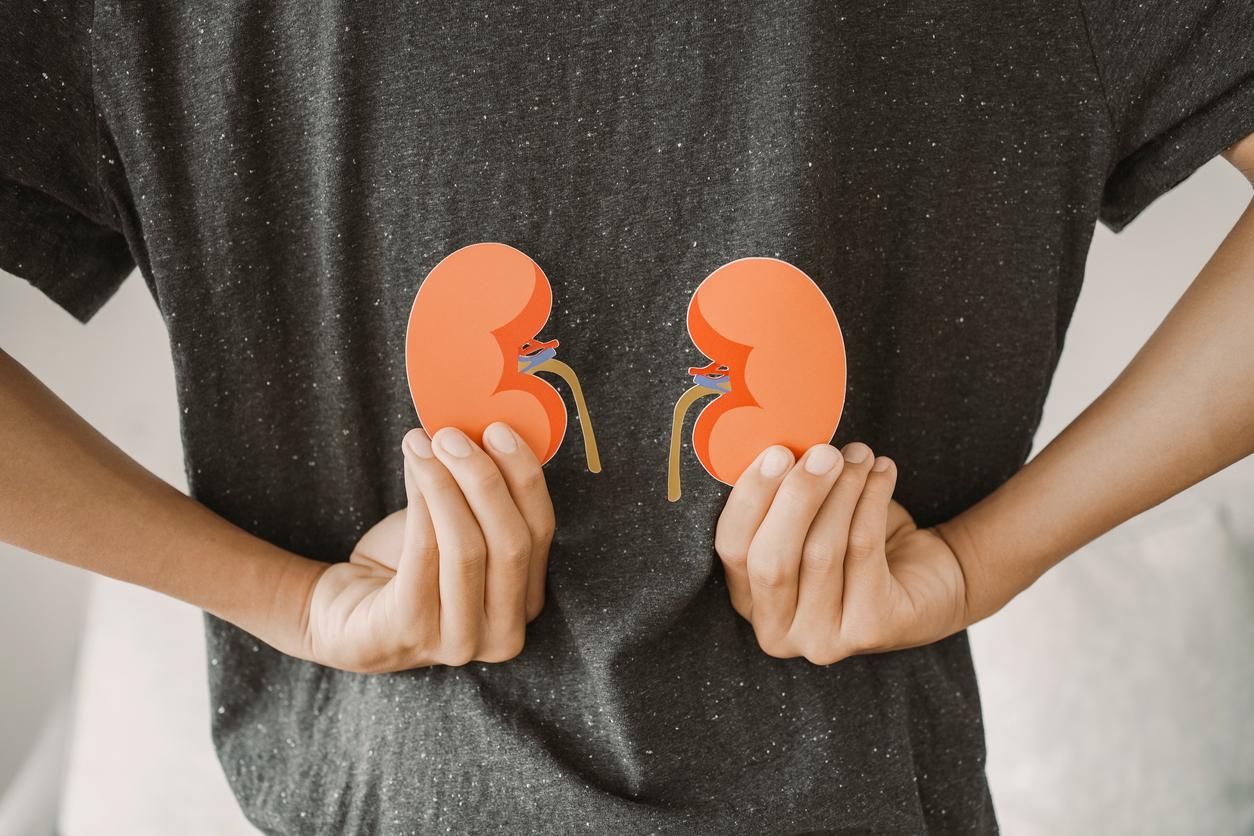
People with diabetes, high blood pressure, overweight
About 1.7 million people have chronic kidney damage. In half of these, this has not yet been discovered. This can be serious because when the kidneys don’t work as well, waste products build up. And that is bad for other organs. Some people are at extra risk for kidney damage. Who belong to that risk group?
kidney damage can be detected by means of traces of protein in the urine. Kidney damage can also manifest itself in reduced kidney function, which makes the kidneys work less well. More than 1.7 million Dutch people (10 percent of the population) suffer from it, even if they don’t notice it yet. In many cases, kidney damage goes unnoticed in the beginning. Complaints often only arise when the kidney function is only 30 percent. 4 percent of the Dutch population – about 680,000 people – have chronic kidney damage without knowing it. Minor kidney damage is not directly a major health hazard, but it is important to detect hidden kidney damage in time. Then you can take measures to prevent further problems as much as possible.
More than 50,000 Dutch people have serious kidney damage with serious consequences. Essential processes are then disrupted in the body, other complaints can also arise, such as cardiovascular problems. No fewer than 170,000 Dutch people have a greatly increased risk of kidney failure and death as a result of heart disease.
waste
When our kidneys work less well, waste products accumulate. That is bad for the heart and blood vessels. We only notice that our kidneys no longer perform their purifying function properly when only 30 percent (or less) of the kidney function is left. Then there are complaints. With further deterioration of the kidney function to about 10 percent, there is a risk kidney dialysis or even kidney transplant.
Some people are more at risk for kidney damage than others. People with diabetes or high blood pressure for example. Also overweight, too salty food and old age increase the risk of kidney damage.
Diabetes
People with diabetes are more likely to develop kidney damage than people without diabetes. A quarter of people with diabetes also have kidney damage. Therefore, in diabetes, kidney function is regularly checked by means of blood and urine tests.
Type 2 diabetes (formerly known as ‘adult-onset diabetes’) is often not discovered until it has been around for some time. It is becoming more common, even in young people. Sometimes minor kidney damage is already present. Because overweight plays an important role in the development of this form of diabetes, to lose weight reduce or even completely eliminate the diabetes. This also reduces the risk of kidney damage. If the kidney damage is already there, the kidneys usually do not recover.
High bloodpressure
High blood pressure and kidney damage are also closely related. About 1 in 5 patients with high blood pressure has chronic kidney damage. In the Netherlands, an estimated half a million people between the ages of 20 and 65 have high blood pressure. A number that is growing rapidly with age: more than two-fifths of people over 50 suffer from high blood pressure.
Sieve bodies
We have two kidneys. Each kidney contains between half and a million sieve bodies. Such a sieve body is a tangle of fine blood vessels. There the blood is filtered for purification. With high blood pressure, these sieve bodies receive less blood. As a result, they gradually – but permanently – stop purifying and the kidney function deteriorates irreversibly.
Check
1 in 5 people with high blood pressure have permanent (chronic) kidney damage. If you suffer from high blood pressure, it is therefore important to have your kidneys checked annually. Because if you are on time, kidney damage can often be limited. This check can be done at the doctor’s office. He or she looks at the amount of protein in your urine and does blood tests to determine kidney function. If there is chronic kidney damage, the doctor may decide to prescribe (other) blood pressure lowering drugs.















